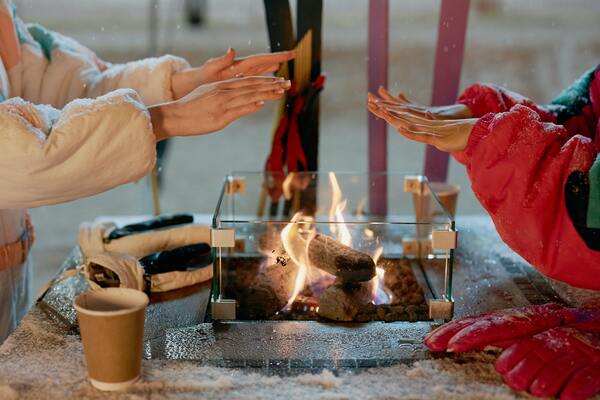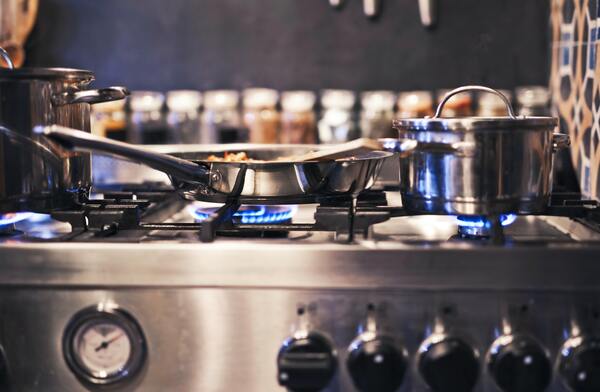A sun porch, garage, workshop, or shed are examples of places where propane heaters can be used to heat a room that the HVAC system in your house can’t. In an emergency, propane heaters are a quick and inexpensive way to heat your house, but are they safe to use inside? Propane heaters can be safely used indoors if they are operated properly. Read this article and you can learn more about propane heaters used indoors.
What Is Propane
Propane is a gas and a simple alkane with the formula of C3H8. It can therefore be burned “cleanly” when used as fuel because it is made entirely of carbon and hydrogen.
By which we mean more cleanly than say petrol or coal (CO2 is, of course, a greenhouse gas, and burning any hydrocarbon produces CO2).
When compressed, propane turns into a liquid, which makes it much safer to transport than, say, canisters of methane (another alkane), which is one of the reasons it is so popular as a fuel.
Humanity has been using propane since the 19th century and it was discovered in by 1857: a French chemist. In the early parts of the 20th century, it began to be sold commercially, reaching the United States in or around 1911.
What Is A Propane Heater
A heater that burns propane is what its name implies: it is just a heater. Depending on the precise type of heater needed, they come in a variety of shapes and sizes.
Since propane vaporizes on its own, they all share the feature of not requiring a vaporizing device.
As a result, propane heaters are less expensive than other types of heaters because they only require a metering nozzle to direct the gas flow.
Strangely, propane is not particularly “energy-dense,” so the flame it produces is cooler than what you would get from burning coal or gasoline. This is not necessarily a bad thing, though, as the flame is more than hot enough to be used for heating or cooking.

Can You Use A Propane Heater Indoors
Certain propane heaters can be used indoors, so yes! There are two categories of propane heaters: indoor and outdoor. Indoor models are designed to be safe for indoor use. An indoor model is the best option if you want a warm and secure experience. A carbon monoxide detector and adequate ventilation (such as a garage) are required for your propane heater that is only intended for outdoor use.
Double-checking the type of propane heater you purchase is advisable for a good reason. Indoor and outdoor propane heaters handle the smoke they create very differently.
Carbon monoxide poisoning can result from using a propane heater designed for outdoor use in an area with inadequate ventilation.
What To Be Aware Of
Install A Carbon Monoxide Detector
The first thing you should do if you’re planning on using a propane heater inside is to get a carbon monoxide detector. Your CO levels will be monitored for you by these useful tools. The CO detector will warn you just like a smoke detector if they ever get close to anything to be concerned about.
You can feel secure using detectors: knowing that even if something goes wrong you’ll know about it.
Ventilate
Even though a propane heater is intended for indoor use, you should leave a window slightly ajar while using it.
Depending on the heater’s BTU output, different ventilation requirements apply.
For instance, the Mr. Heater Big Buddy (4.25 x 4.25 inches) needs 18 square inches of ventilation.
To find out how much ventilation is needed, consult the heater’s user manual.
Look At The Flame Color
Less CO gas is produced when the heater is burning the fuel effectively. How efficiently the propane is being burned will be indicated by the color of the flame.
- Blue flames: You want to see this, so here it is. Only a small amount of CO gas is produced during the clean burning of the fuel.
- Flames that are red, orange, or yellow: When these colors appear, the propane is not being burned completely, which results in the production of more CO gas.
Fire Hazard
Any heater, including gas heaters and portable space heaters, presents a risk of fire. They may overheat and catch fire if they tip over.
Likely to catch fire is anything that comes too close to the heating element.
Although they are effective, indoor propane heaters have security features.
The heater will turn off automatically if it tips over, which is the most crucial fire safety feature. Some heaters can detect overheating and will turn off if they become too warm.
Oxygen Depletion
The fuel must be burned with oxygen in propane heaters. An indoor propane heater could eventually deplete the air’s oxygen supply to dangerously low levels.
This is not a part of the CO poisoning problem.
Many indoor propane heaters have oxygen depletion sensors (ODS) built in, which will cause the heater to turn off if oxygen levels fall below 18%. The anti-CO poisoning feature is another benefit.
Never Leave A Propane Heater Unattended
One that you keep an eye on is a safe propane heater. If you’re not there, it’s all too simple for a pet, kid, or wind gust to topple your heater. Instead, stay nearby while the heater is running. Staying close by also makes sense. Because all the warmth is there, after all!
Only Use Propane Heaters Rated For Indoor Use
It’s crucial that you only employ propane heaters designed for indoor use.
Studies like this one have demonstrated that outdoor propane heaters can produce CO levels of 100 ppm in as little as 50 minutes of use. Sickness may result from exposure to these levels.
Within 8 hours, concentrations of 150 ppm can be fatal.
Store And Move Your Heater Properly
When you’re not using a heater, you should still take care of it. Most heaters should only be stored and moved while upright. Their internal connections may become jumbled if they are stored or handled sideways.
Is Propane Toxic
No, alkanes pose little risk to humans in small amounts; the main dangers in large amounts are suffocation and ignition/explosion hazards.
Propane cannot be consumed orally because it becomes a gas as soon as it leaves the canister, and even if you could cool it down enough to turn it back into a liquid, doing so would cause your lips and mouth to immediately freeze.

